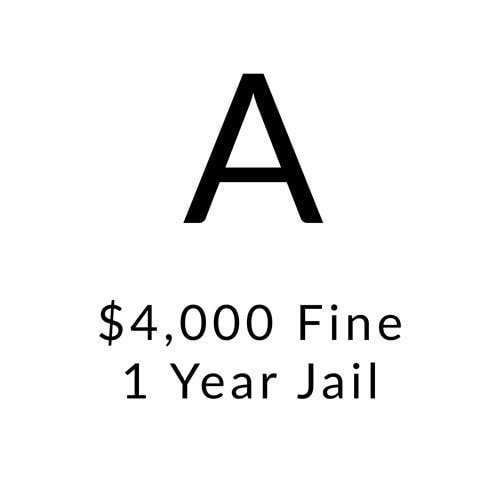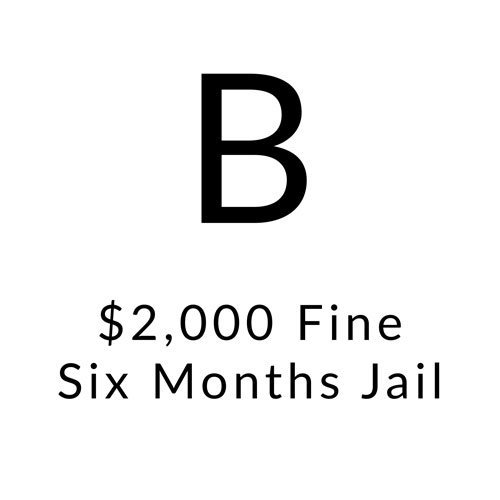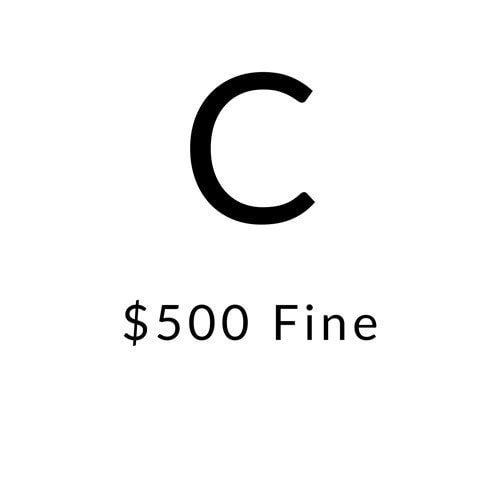Dallas Misdemeanor Lawyer | Best Misdemeanor Defense
What is a misdemeanor in Texas?
There are two classifications of crimes in Texas – misdemeanors and felonies. Misdemeanors are lesser offenses, but the penalties and punishment can be severe and devastate your life.
All Texas misdemeanors are punishable with a fine, and Class A and B offenses can include jail time. For example, a conviction for a Class A misdemeanor, the most serious level of misdemeanor in Texas, could come with a year in county jail and a maximum $4,000 fine.
The most common misdemeanors in Texas include theft, DWI, and simple assault.
No matter the offense, you need an experienced Dallas misdemeanor lawyer as soon as possible if charged in Dallas County.
Varghese Summersett has an experienced team of defense attorneys in Dallas, ready to fight your case, work for the best possible outcome, and help you through the legal process.
What are the penalties for misdemeanor convictions in Dallas County?
The Texas Penal Code lays out three levels of misdemeanor offenses: Class A, Class B, and Class C. The maximum penalties for each:
Class A misdemeanors: Up to one year in county jail and a $4,000 fine

Class B misdemeanors: Up to 180 days in jail and a $2,000 fine

Class C misdemeanors: Up to a $500 fine

In many misdemeanor cases, the punishment often includes probation, deferred adjudication, or special programs overseen by the court.
What are common Class A misdemeanor charges in Dallas County?
Class A misdemeanors are punishable by up to a year in county jail and a $4,000 fine. Common Class A misdemeanors include:
- DWI (2nd offense)
- DWI (Blood-alcohol concentration greater than .15)
- Burglary of a vehicle
- Theft of property valued at $750 but less than $2,500
- Assault causing bodily injury
- Assault causing bodily injury to a family member (family violence)
- Unlawfully carrying a weapon
- Possession of marijuana (more than two ounces but less than four ounces)
- Resisting arrest
- Domestic violence
- Unlawful restraint
- Violation of a protective order
What are common Class B misdemeanors in Dallas County?
Class B misdemeanors are punishable by up to 180 days in jail and a $2,000 fine. Common Class B misdemeanors include:
- DWI (first offense)
- Terroristic threat
- Indecent exposure
- Public lewdness
- Prostitution
- Possession of marijuana (under two ounces)
- Evading arrest on foot
- Harassment
- Criminal trespass
- Reckless driving
What are common Class C misdemeanors in Dallas County?
Class C misdemeanors are citations only and are punishable by up to a $500. Some common Class C misdemeanors include:
- Public intoxication
- DUI by a minor
- Minor in possession of alcohol (under age 21)
- Minor in consumption of alcohol (under age 21)
- Assault by contact (simple assault)
- Disorderly conduct
- Possession of drug paraphernalia
- Possession of alcohol in a motor vehicle (open container)
- Theft of less than $100
What is the statute of limitations for misdemeanors in Dallas?
The state can file misdemeanor charges for up two years from the date of the offense. Article 12.02 of the Texas Penal Code says an indictment or information for any Class A or Class B misdemeanor may be presented within two years from the commission of the offense, not afterward.
For Class C misdemeanor offenses, a complaint or information may be presented within two years from the date of the offense and not afterward.
Dallas County Pretrial Services Program
Dallas County offers several pretrial programs for some individuals facing misdemeanor offenses. These programs include:
- Pretrial Release: This allows those arrested on Class A and B misdemeanors with an alternative to jail while their case is being adjudicated.
- Alcohol Monitoring Unit (AMU): Defendants are released on bond with a statutory or court-ordered alcohol monitoring device as a condition of release and supervised by technicians.
- Electronic Monitoring (ELM): This allows defendants to be out of jail under house arrest. If allowed by the judge, the program lets defendants go to work or school while under intensive ELM supervision.
- Alternative Sentencing Program (ASP): If allowed by the judge, this program offers an alternative for defendants with county jail sentences to serve their time on house arrest.
Collateral Consequences of Dallas Misdemeanor Convictions
Misdemeanors can’t be taken lightly. A conviction could bring a slew of adverse effects that upend your life with devastating collateral consequences. A Dallas misdemeanor conviction is likely to show up on background checks, which could affect your employment, school, or getting a loan, and right to possess a firearm.
A misdemeanor conviction could potentially increase the punishment for any future misdemeanor offense. Instead of facing a range of punishment that includes no days in jail, the new offense could bring mandatory jail time.
For example, a misdemeanor DWI conviction can result in a driver’s license suspension. Likewise, a Class B misdemeanor conviction for marijuana possession of two ounces or less can result in a license suspension for six months if you’re 21 or older and a year if you’re younger than 21.
Why an experienced Dallas misdemeanor lawyer is imperative
An experienced Dallas misdemeanor attorney is necessary to have any chance of weakening the charges or getting the case dismissed. The seasoned defense attorneys at Varghese Summersett know the Dallas County system well and the people who work in it.
Charged with a misdemeanor offense in Dallas? Call us.

You need an experienced Dallas defense attorney to fight to get the optimum result in your misdemeanor case and help keep your record free of criminal charges. A good defense could mean the difference between a conviction and a dismissal. Furthermore, a Class C misdemeanor with deferred adjudication could potentially be expunged from your record. Class A and B misdemeanors could be eligible for a ruling of nondisclosure of criminal history.
It’s imperative to understand the potential punishment you’re facing and the consequences of a conviction.
For this, you need an experienced Dallas misdemeanor lawyer. Call our Dallas office today for a free consultation at 214-903-4000
